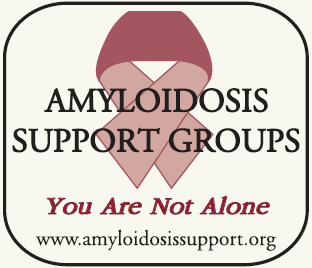Trusted Resources: Education
Scientific literature and patient education texts
Depression and Anxiety in Patients With AL Amyloidosis as Assessed by the SF-36 Questionnaire
source: Amyloid: The International Journal of Experimental and Clinical Investigation
year: 2016
authors: Shu J, Lo S, Phillips M, Sun F, Seldin DC, Berenbaum I, Berk JL, Sanchorawala V
summary/abstract:Background:
Our study examines depression and anxiety in patients with immunoglobulin light chain (AL) amyloidosis, and determines the associations between the mental health problems and patient characteristics (age, gender, race, marital status, alcohol consumption, smoking status and cardiac involvement).
Methods:
Patients with AL amyloidosis who completed the 36-item Short Form General Health Survey (SF-36) during initial evaluation at a single center were studied. The SF-36 included assessments of depression, anxiety, role limitation due to emotional problems and the mental health subscale score.
Results:
From 1226 patients with AL amyloidosis, 37.0% reported depression and 46.7% reported anxiety. Patients with cardiac amyloidosis reported more anxiety (odds ratio (OR) = 1.29, 95% confidence interval (CI) 1.03-1.61) and role limitation due to emotional problems (OR = 1.32, 95%CI 1.05-1.65). No significant association between cardiac involvement and depression was found (OR = 1.22, 95%CI 0.97-1.54). Men reported less anxiety (OR = 0.72, 95%CI 0.57-0.91). Patients ≥65 years experienced greater role limitation (OR = 1.36, 95%CI 1.08-1.71). Smokers (p = 0.019) and women (p = 0.006) scored lower on mental health subscales.
Conclusions:
Many patients with AL amyloidosis suffer from depression, anxiety and functional limitations. Psychiatric assessment and treatment is important, and further research is needed to clarify the long-term effects of depression and anxiety in AL amyloidosis.
organization: Boston Medical Center, USA; Boston University School of Public Health, USA; Boston University School of Medicine, USADOI: 10.1080/13506129.2016.1208081
read more
Related Content
-
ISA 2020 | MRD Using Multi-Parametric Flow Cytometry in AL Amyloidosishttps://www.youtube.com/watch?v=hhOs8uTf...
-
San Diego — Amyloidosis Support Groups Meeting — LIVE — Saturday, April 27, 2024When: Saturday, April 27, 2024 AL wi...
-
Webinar Presentation by Angela Dispenzieri on the Treatment of Light Chain (AL) Amyloidosishttps://www.youtube.com/watch?v=8k7eubg5...
-
Q&A: Fatigue, Amyloid Presence in Bone Marrow, CAR-T – ASG Webinar 13/13https://www.youtube.com/watch?v=4gUXPbOk...
-
Clarification on Prothena AFFIRM and CAEL-101 Global Trials: Muriel Finkel – ASG Webinar 11/13https://www.youtube.com/watch?v=NrEjyVeJ...
-
Eli Muchtar, MDEli Muchtar is a hematologist at Mayo cl...
-
AL Amyloidosis and the Heart by Dr. Tony Urey – ASG Webinar – 5/9https://www.youtube.com/watch?v=vP4wvJq5...
To improve your experience on this site, we use cookies. This includes cookies essential for the basic functioning of our website, cookies for analytics purposes, and cookies enabling us to personalize site content. By clicking on 'Accept' or any content on this site, you agree that cookies can be placed. You may adjust your browser's cookie settings to suit your preferences.
More information
The cookie settings on this website are set to "allow cookies" to give you the best browsing experience possible. If you continue to use this website without changing your cookie settings or you click "Accept" below then you are consenting to this.
To improve your experience on this site, we use cookies. This includes cookies essential for the basic functioning of our website, cookies for analytics purposes, and cookies enabling us to personalize site content. By clicking on 'Accept' or any content on this site, you agree that cookies can be placed. You may adjust your browser's cookie settings to suit your preferences.
More information
The cookie settings on this website are set to "allow cookies" to give you the best browsing experience possible. If you continue to use this website without changing your cookie settings or you click "Accept" below then you are consenting to this.



 myBinder
myBinder




